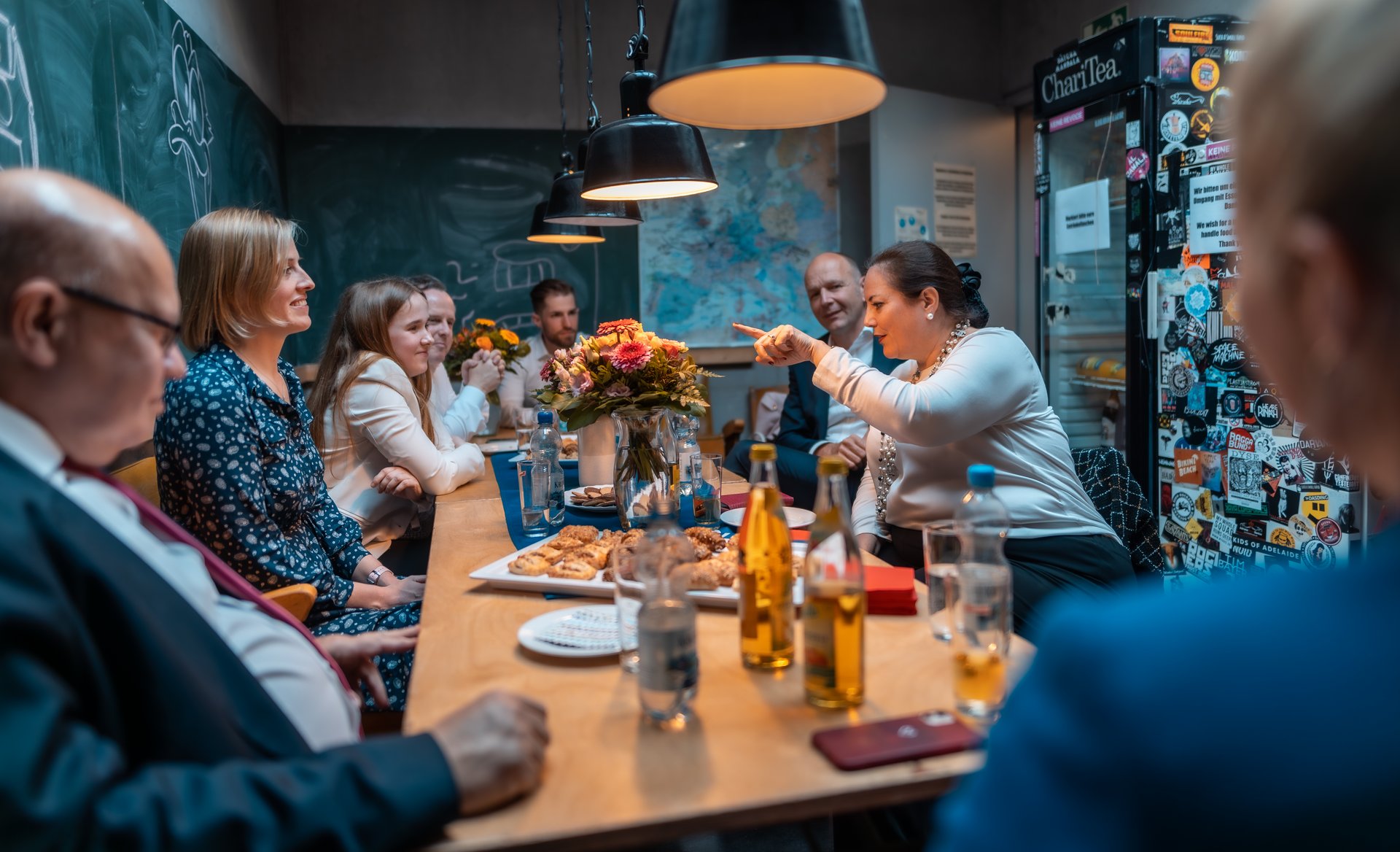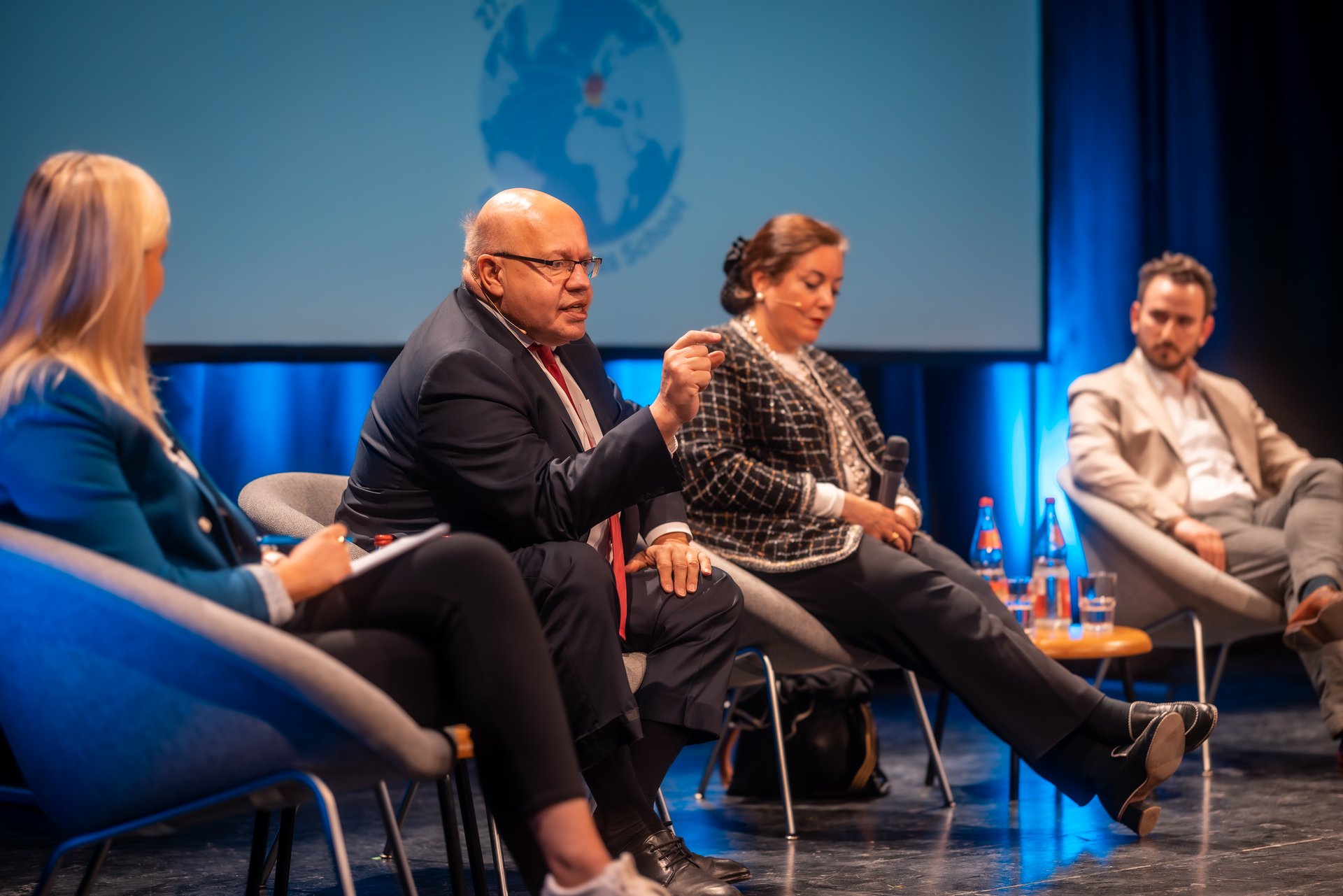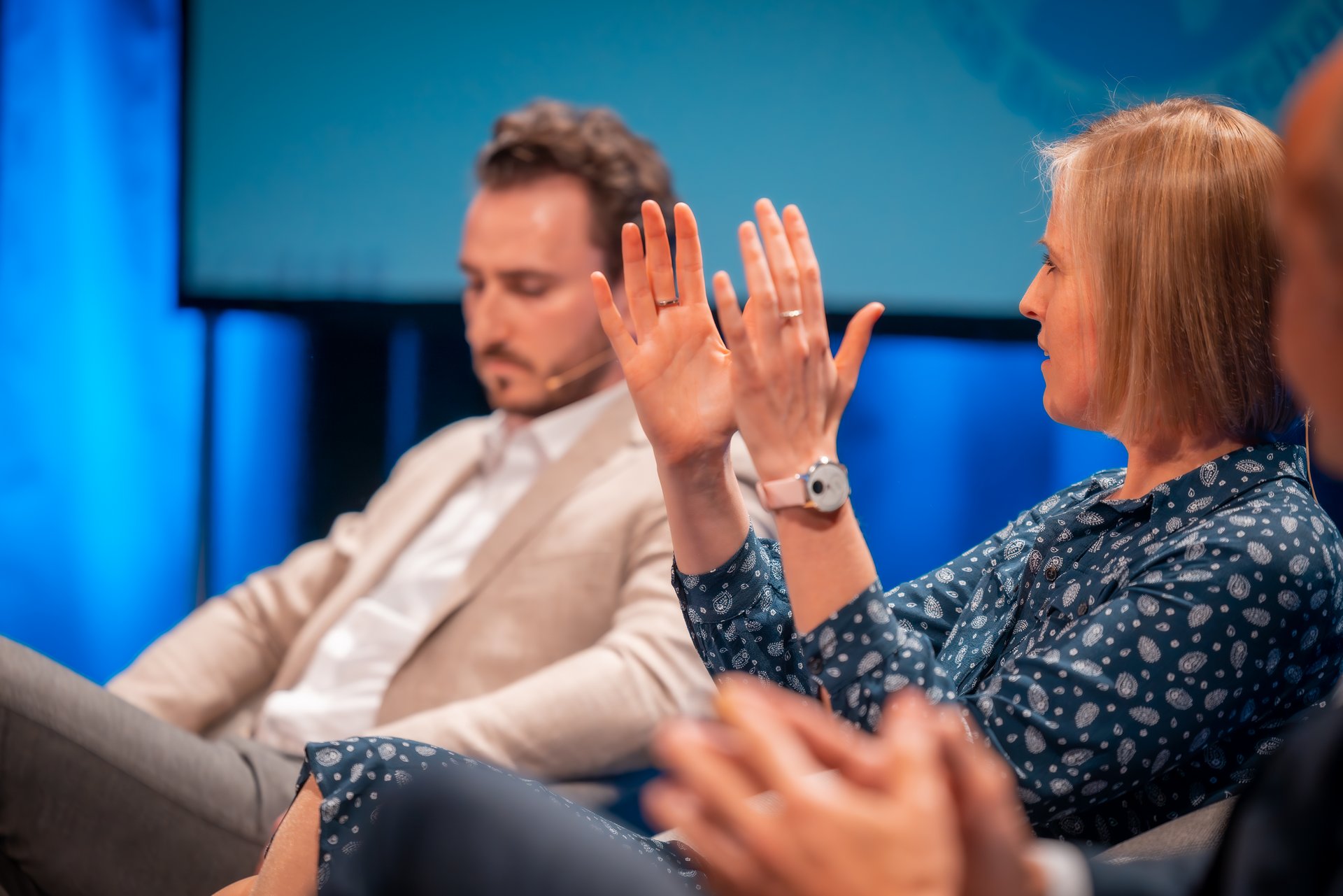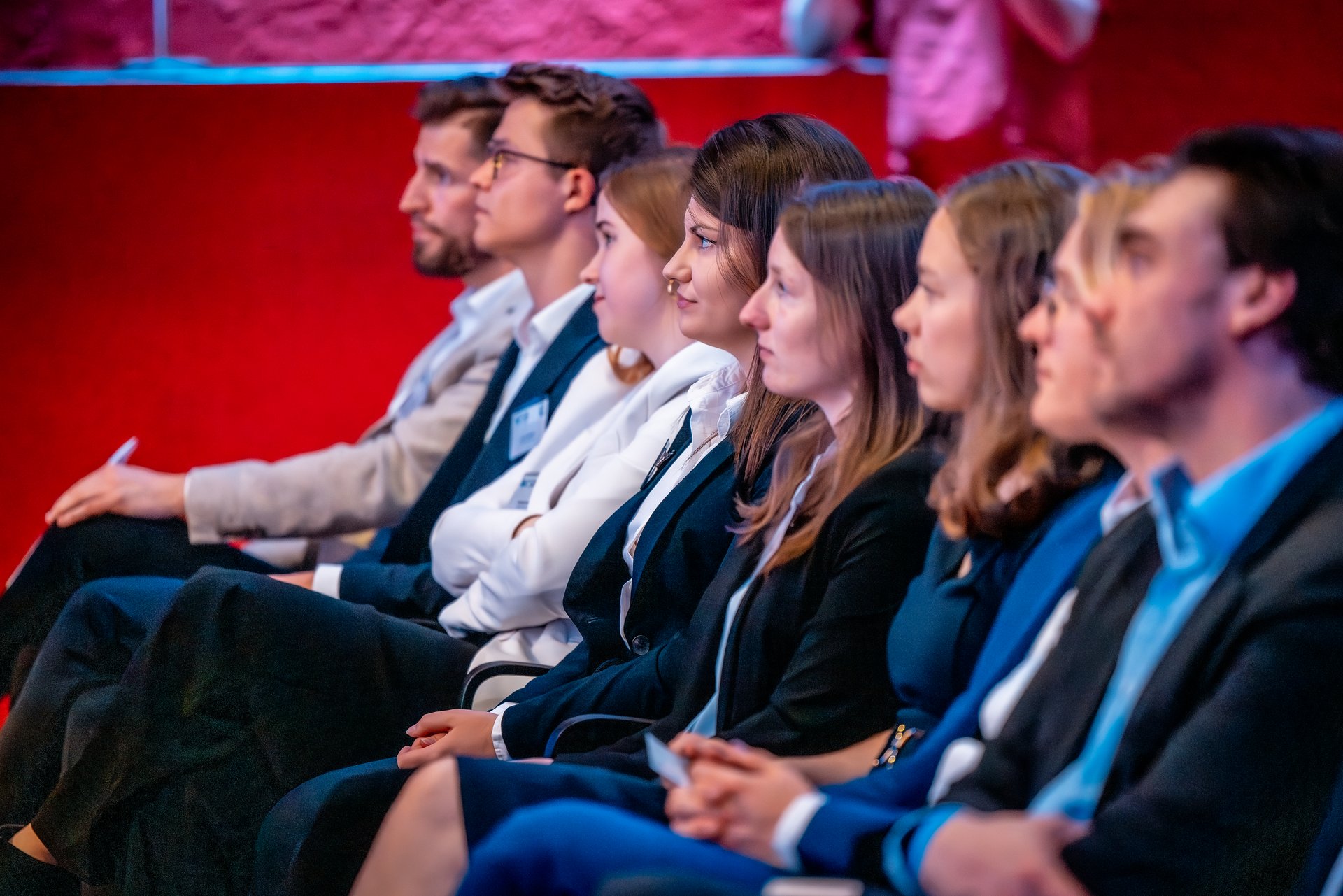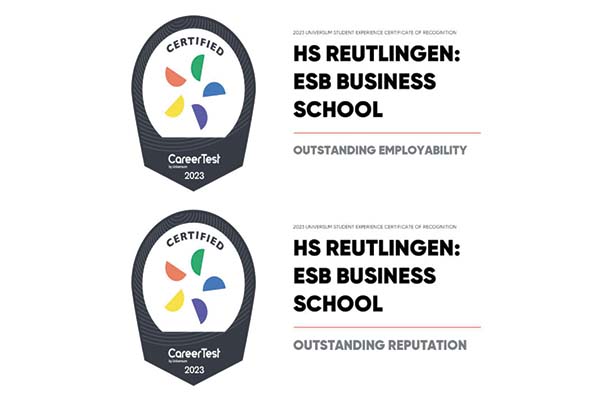Will Germany still be a global player in 2030?

"Germany in 2030 - Global Player or Global Loser?" - the topic of this year's ESB Business Forum attracted more than 250 guests to the cultural centre franz.K in Reutlingen. Yesterday, five top-class experts from academia, politics and business discussed Germany's current role in world affairs and the future of the Federal Republic on the global stage. They included Peter Altmaier, former Federal Minister for Economic Affairs and Energy, Thomas Dauner, former Managing Director and Senior Partner at The Boston Consulting Group GmbH, Anna Göddeke, Professor of Economics at the ESB Business School, Remy Lazarovici, Managing Director DACH at Celonis Deutschland GmbH and Isabel Corinna Knauf, Member of the Shareholders' Committee of the Knauf Group and Supervisory Board Member at Continental AG.
Moderator Dr. Julia Hagel introduced the discussion at the 27th ESB Business School Economic Forum by saying: "World export champion", "European patent champion", "Made in Germany" as a seal of quality - when it comes to Germany as a place to do business, you read these terms less and less in the media," Instead, she said, one reads more and more often about the threat of economic decline and doubts about the future viability of the country.
However, the representatives from politics, academia and business were unanimous in their opinion that Germany will continue to be one of the global players in 2030; at the same time, they pointed out the need for action in many areas.
With regard to the status quo of Germany as a business location Peter Altmaier said: "I would like to start by complimenting German politics: We have been stronger than before after every crisis for the last 70 years. That is proof of a stable political and economic system, good workers, and a strong middle class. But the rot has set in". In the future, he said, we will have to deal with three disruptive events: a global redistribution of economic power, a great need to catch up on technologisation and digitalisation, and an unresolved conflict of goals between economic and climate policy interests. "If we look at the rankings, at investments, spending on research and development, at our role in hydrogen and AI, at the state of our infrastructure and digitalisation - unfortunately the trend for Germany has been going down a bit in recent years," Thomas Dauner noted. Anna Goeddeke was concerned about the education sector and specified the shortage of skilled workers - in some sectors even labour shortages - as another current risk factor for the German economy. As a "professional optimist", Remy Lazarovici, himself an expert on business start-ups, admitted that Germany has potential as a location for start-ups despite suboptimal framework conditions. He and Isabel Corinna Knauf saw a need for optimisation in the country's logistical infrastructure and energy policy.
In terms of possible solutions, the panel saw both the government and each individual as having a duty. "We have to stop hoping for the old times to come back, and face the new challenges. We have to start now to reform education, energy, infrastructure, administration and licensing procedures," Knauf said. A differentiated approach depending on the sector and the needs of the companies and then consistently implementing the decision-making measures taken is important here, he said. It is also important to be clear: "If we want this, it will cost something," she emphasised.
"I am very optimistic about Germany's competitive situation in 2030," Göddeke said with conviction. Courage for global trade relations with a new sensitivity for dependencies and a well thought-out international division of labour on the basis of competition would be useful. Micro-management of the economy or protectionism by the state, on the other hand, are less helpful. Lazarovici in particular emphasised the importance of training and talent promotion for future viability: "With many innovative companies, excellent universities and well-trained talent, we have a good starting position in Germany to successfully design the necessary transformations," he said. Therefore, he would like to see more talent promotion, investment in education and openness for recruited skilled workers and labour. With regard to the labour market, reforms in wages, working time and taxation models were also tools which could be used for adjustment, Göddeke said. Dauner emphasised that the energy turnaround as an engine of growth and prosperity was essential for a future global player, but that the "building blocks had to fit together" and the framework conditions had to be created with a long-term plan. It was important to Altmaier here that the middle class should not be the loser of the transformation, because: "We need a modern, sustainable climate policy that ensures that prosperity and climate protection are not opposites, but two sides of the same coin". In the future, he would like to see a non-partisan, long-term plan that is supported by a social consensus. If these solutions were pursued, the participants in the discussion agreed, Germany would still find itself among the global players in 2030.
The successful event crowned a year of voluntary planning by the student organisation team. "It's great to see that we are not too young to put on such an event with the support of ESB - with a full franz.K and renowned speakers. We managed to do that as a team," said a pleased Alexandra Schmidt, a student in the 4th semester of the International Management Double Degree (IMX) Bachelor's programme, after the event ended. The other members of this year's organising team were Nicolai Winter, Lucas Osterauer and Lara Vogt (acquisition of speakers), Alexandra Schmidt and Elisa Pigliacampo (logistics) and Melissa Reinhard and Philipp Bergner (marketing).
